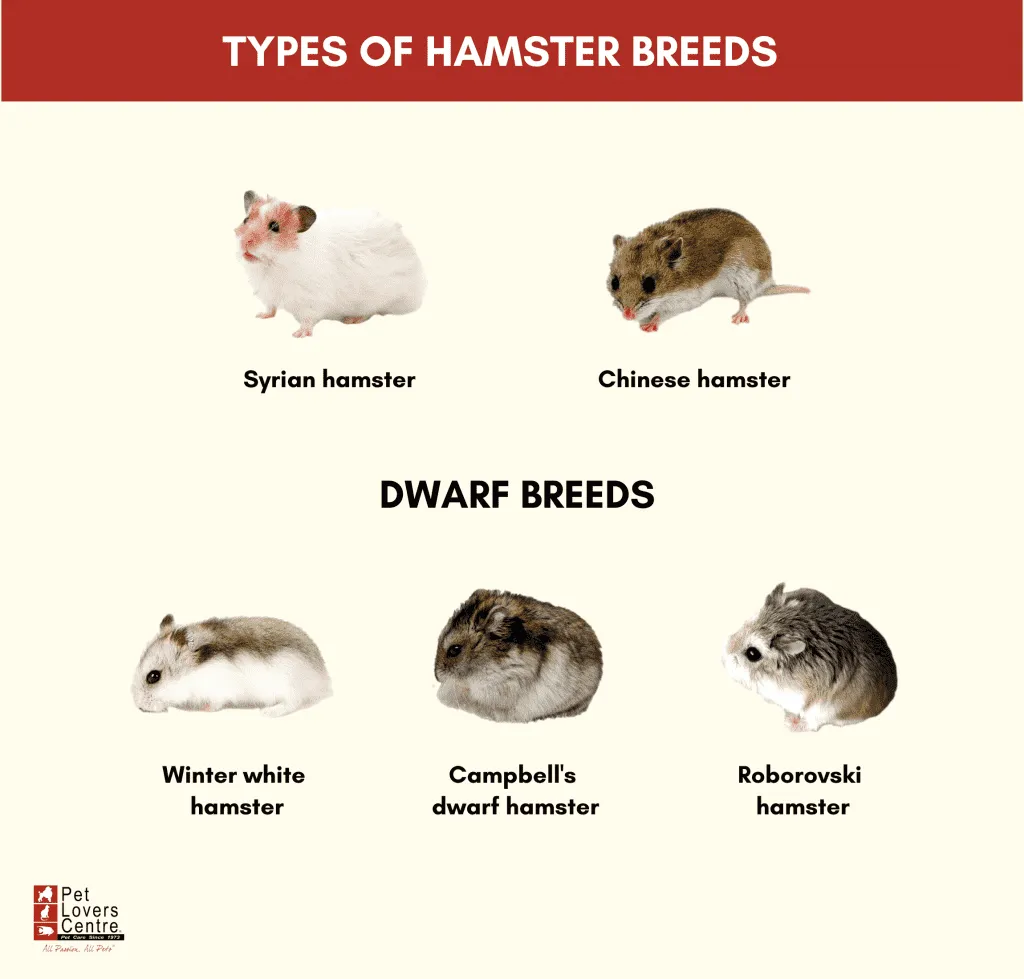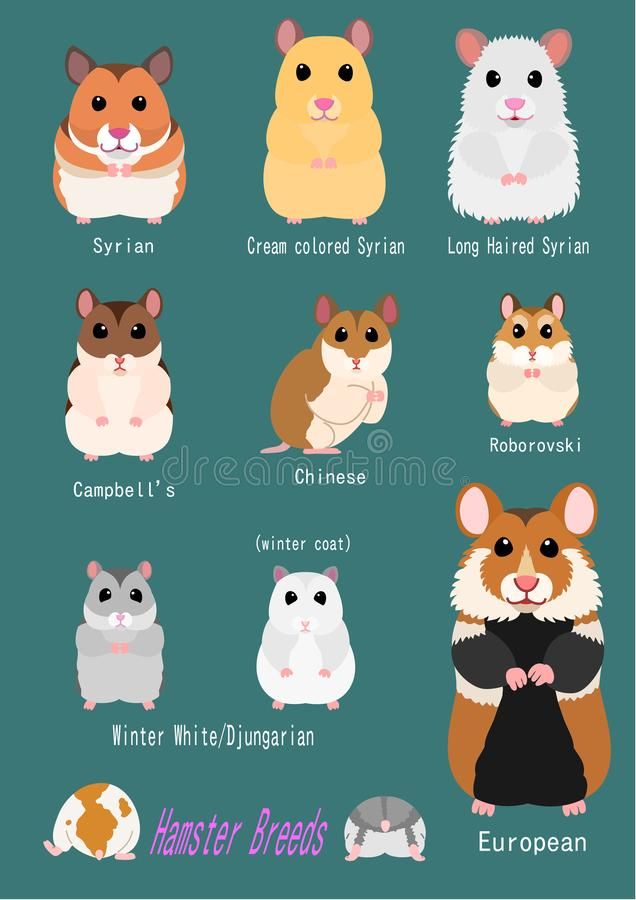Hamster Types for Beginners
Understanding Different Hamster Breeds
When considering a hamster as a pet, understanding the various hamster breeds is essential, particularly for beginners. Knowing the characteristics, size, and temperament of each breed will help ensure that you find the ideal match for your lifestyle and needs. Here we explore some of the most common types, their unique traits, and how they differ from one another.

1. Syrian Hamsters
The Syrian hamster, also known as the golden hamster, is one of the largest and most popular breeds among pet owners. Adult Syrian hamsters can grow between 5 to 7 inches long and are generally known for their friendly nature. They have a noticeable personality and can easily be socialized, making them a great choice for first-time owners. One important aspect to note is that Syrian hamsters are solitary creatures and must be housed alone to prevent territorial disputes.
2. Dwarf Hamsters
Dwarf hamsters include several breeds, such as the Campbell’s dwarf and the Roborovski. They are much smaller than their Syrian counterparts, usually growing up to 4 inches in length. Although dwarf hamsters can be social and kept in pairs or small groups, it is crucial to monitor their interactions closely. They can sometimes display aggressive behavior. This breed is lively and curious, making them entertaining pets, but they tend to be faster than Syrian hamsters, which can make handling a bit tricky for beginners.
3. Chinese Hamsters
Chinese hamsters are another fascinating breed characterized by their long, slender bodies and short tails. They are often mistaken for dwarf hamsters but are a distinct breed. Average growth is about 4 to 5 inches. Chinese hamsters are known for being shy and can take longer to acclimate to their environment. They typically thrive in quieter settings and can become affectionate with gentle handling over time. Beginners should be patient when socializing with a Chinese hamster.
Choosing the Right Hamster for You
Deciding on the right hamster goes beyond just looking at available breeds. Factors such as temperament, housing requirements, and dietary needs also play pivotal roles. For first-time hamster owners, considering how much time you can dedicate to your pet daily can also influence your decision.
Handling and Socialization
Establishing a bond with your hamster is essential, especially for beginners. When handling your pet, ensure you’re calm and patient. Allow your hamster to come to you instead of forcing interactions. Start with shorter periods of handling to avoid overwhelming your pet. With regular interaction, your hamster will learn to trust you. For example, placing your hamster on your lap or using a small playpen can provide a safe space for socialization.
Habitat and Accessories
Creating a sustainable habitat is crucial for your hamster’s health and happiness. Hamsters require a spacious cage with proper ventilation, bedding for burrowing, a water bottle, and chew toys to keep their teeth healthy. You can enhance the environment with tunnels, platforms, and exercise wheels to prevent boredom. Lastly, it’s also worth investing in appropriate food and treats specifically tailored for the breed of hamster you own. This ensures they receive a balanced diet.
Common Health Considerations
As a new hamster owner, being aware of common health issues can help you maintain the well-being of your pet. Regular veterinary check-ups are essential, and monitoring your hamster’s behavior can provide early signs of health issues. Symptoms like lethargy, loss of appetite, and changes in grooming habits should prompt immediate investigation.
Signs of Illness
Hamsters are excellent at hiding their discomfort, so it’s crucial to watch for subtle signs of illness. If your hamster becomes less active or is sneezing frequently, it may indicate respiratory problems. Additionally, look for signs of wet tail, which is a common digestive issue. Early intervention can make a significant difference in treatment success. Consult with a vet who has experience with small animals if ever in doubt.
Average Lifespan of Hamsters
Knowing the average lifespan of hamsters can help set pet-owning expectations. On average, hamsters live about 2 to 3 years, depending on the breed, diet, and care provided. Syrian hamsters may tend towards the longer end of this lifespan scale. Making your hamster’s last years comfortable through proper care, habitat management, and nutrition will ensure they live a healthy life.
Key Takeaways
- Understanding different hamster breeds is crucial for selection.
- Establishing a proper habitat and daily care routine supports hamster health.
- Awareness of common diseases can improve longevity and life quality.
- Socialize patiently to build trust with your new pet.
FAQ
1. What type of hamster is best for children?
For children, the Syrian hamster is often recommended due to its friendly disposition and easier handling. Syrian hamsters tend to be less skittish than dwarf hamsters and can develop a strong bond with young owners. However, supervision is always necessary to ensure safe handling.
2. How do I clean my hamster’s cage properly?
Cleaning your hamster’s cage is essential for maintaining a hygienic environment. Remove old bedding, uneaten food, and waste daily. A full clean should occur weekly, where you change the bedding, wash accessories with water and mild soap, and ensure the habitat is dry before reassembling. This prevents odors and ensures your pet remains healthy.
3. Can hamsters eat fruits and vegetables?
Yes, hamsters can eat certain fruits and vegetables in moderation. Safe options include carrots, cucumber, and apples, but always avoid citrus and toxic plants. Introduce new foods slowly to monitor for potential allergies. It’s essential to ensure all foods are washed clean and cut appropriately for easy consumption.
4. How often should I handle my hamster?
Begin by handling your hamster for about 10-15 minutes daily. Gradually increase the time as your pet becomes more comfortable. It’s also advisable to handle them at similar times each day to help establish a routine, which can ease anxiety in your pet.
5. Are hamsters nocturnal?
Yes, hamsters are predominantly nocturnal, meaning they are more active during the night. This behavior is natural and should be considered when setting up their environment. Make sure their habitat allows for plenty of activities to keep them engaged during their active hours, so they remain healthy and happy.
